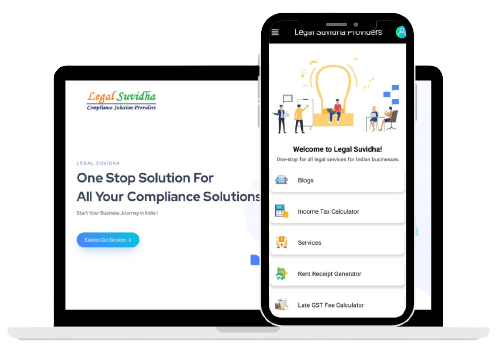ISO 27001: Information Security Management
ISO 27001: Information Security Management – A Simple Guide In today’s digital world, keeping sensitive information safe is more important...
Accounting involves interpreting, analyzing, and reporting the financial information to provide insights for decision-making and compliance while Bookkeeping is primarily concerned with recording and organizing financial transactions in a systematic manner. Many businesses, especially smaller ones, often outsource these functions to specialized Accounting and Bookkeeping Services firms to ensure accurate and efficient financial management.

Happy Clients
Years Experience

Happy Clients
Years Experience
Accounting and Bookkeeping are both essential financial processes used by businesses to manage their financial transactions, track their financial health, and make informed decisions. While they are related, they serve distinct purposes within the realm of financial management.
Bookkeeping: Bookkeeping is the foundational process of recording and organizing financial transactions. It involves systematically recording every financial transaction that a business engages in, such as sales, purchases, expenses, and receipts. These transactions are usually recorded in chronological order in ledgers and journals. Bookkeeping tasks include:
1. Recording Transactions: Recording every financial event in a company’s books, often through tools like accounting software or physical ledgers.
2. Categorizing Transactions: Assigning appropriate categories (like income, expenses, assets, liabilities, etc.) to each transaction for better organization.
3. Reconciliation: Ensuring that recorded transactions match with supporting documents like bank statements, invoices, and receipts.
4. Generating Financial Statements: Providing data for the preparation of financial statements like the balance sheet, income statement, and cash flow statement.
Accounting: Accounting builds upon the foundation laid by bookkeeping and involves analyzing, interpreting, summarizing, and reporting financial data. Accounting provides insights into a business’s financial health and performance. It involves more complex tasks beyond recording transactions, such as:
1. Financial Analysis: Examining financial data to understand trends, patterns, and areas of improvement or concern.
2. Financial Reporting: Preparing and presenting financial statements, which provide a snapshot of a company’s financial status.
3. Budgeting and Planning: Developing budgets and financial forecasts to guide business decisions and future planning.
4. Tax Compliance: Ensuring that the company adheres to tax laws and regulations, and preparing necessary tax documents.
5. Auditing: Conducting internal or external audits to ensure accuracy and compliance with accounting standards.
| Accurate Financial Records | Proper bookkeeping ensures that financial records are accurate, up-to-date, and in compliance with accounting standards. This accuracy is essential for preparing financial statements, tax returns, and other financial reports. |
| Informed Decision-Making | Reliable financial data generated through accounting and bookkeeping allows business owners and management to make well-informed decisions. This information helps in assessing profitability, identifying trends, and planning for the future. |
| Budgeting and Planning | With access to historical financial data, businesses can create budgets and financial plans based on past performance. This helps set realistic goals, allocate resources effectively, and monitor progress toward financial objectives. |
| Financial Analysis | By analyzing financial data, businesses can assess their liquidity, solvency, and overall financial health. This analysis can aid in identifying potential financial challenges and implementing strategies to address them. |
| Track Business Growth | Over time, accounting and bookkeeping data can provide insights into the growth and development of a business. This historical perspective allows businesses to evaluate their progress and make strategic decisions for the future. |
Step 1: Initial Assessment
a.) Client Consultation: Meet with the client to understand their business, financial structure, and accounting needs.
b.) Gather Documentation: Request financial records, previous statements, tax documents, and other relevant information.
Step 2: Setup and Preparation
a.) Software Selection: Choose suitable accounting software based on the client’s requirements and compatibility.
b.) Chart of Accounts: Develop a customized chart of accounts that aligns with the client’s business structure.
c.) System Configuration: Configure the software, input opening balances, and set up user access.
Step 3: Financial Data Entry
a.) Transaction Recording: Enter all financial transactions, including sales, expenses, purchases, and payments.
b.) Bank Reconciliation: Regularly reconcile bank statements with accounting records to identify discrepancies.
Step 4: Journal Entries and Adjustments
a.) Accruals and Deferrals: Make necessary journal entries to adjust for accruals, prepayments, and other adjustments.
b.) Depreciation: Calculate and record depreciation for fixed assets.
Step 5: Financial Statements
a.) Trial Balance: Prepare a trial balance to ensure debits and credits are balanced.
b.) Income Statement: Generate an income statement (profit and loss statement) summarizing revenues and expenses.
c.) Balance Sheet: Create a balance sheet reflecting assets, liabilities, and equity.
Step 6: Tax Compliance
a.) Tax Preparation: Prepare accurate tax returns based on financial statements and relevant tax regulations.
b.) Filing: Submit tax returns to appropriate tax authorities before deadlines.
Step 7: Reporting and Analysis
a.) Financial Reports: Generate regular financial reports such as cash flow statements and budget vs. actual comparisons.
b.) Performance Analysis: Analyze financial data to provide insights and recommendations for financial decision-making.
Step 8: Communication and Review
a.) Client Meetings: Schedule periodic meetings to discuss financial performance, address concerns, and provide updates.
b.) Documentation: Maintain clear records of all financial transactions, adjustments, and reports.
Step 9: Year-End Procedures
a.) Financial Close: Perform year-end closing procedures, including reconciliations and adjustments.
b.) Audit Preparation: Prepare financial statements for external audits if required.
Step 10: Ongoing Support
a.) Questions and Assistance: Provide ongoing support to address client queries and assist with financial matters.
b.) Regulatory Changes: Stay updated with accounting and tax regulations to ensure compliance.
Step 11: Financial Planning
a.) Budgeting: Collaborate with the client to create budgets and forecasts for the upcoming periods.
b.) Financial Strategy: Assist the client in developing financial strategies to achieve their business goals.
Step 12: Continuous Improvement
a.) Process Refinement: Continuously evaluate and refine the accounting process for efficiency and accuracy.
b.) Training: Stay updated with accounting software updates and industry best practices.
1. Financial Records
2. Payroll Information
3. General Ledger Entries
4. Asset and Depreciation Records
5. Tax Documents
6. Financial Statements
7. Contracts and Agreements
8. Legal and Business Documents
9. Banking Information
10. Budgets and Forecasts
11. Previous Year’s Financial Records (for Established Businesses)
12. Industry-Specific Documents
13. Any Relevant Contracts or Agreements
Accounting and bookkeeping services involve the management, recording, and analysis of financial transactions for businesses and individuals. These services help maintain accurate financial records, prepare financial statements, and ensure compliance with tax and regulatory requirements.
Accounting services involve higher-level tasks like financial analysis, tax planning, and strategic financial management. Bookkeeping services focus on recording day-to-day financial transactions, maintaining ledgers, and reconciling accounts.
Yes, small businesses can benefit significantly. These services help small businesses manage their finances efficiently, ensure compliance, and provide insights for growth and cost-saving opportunities.
Accounting services assist in accurate tax preparation by organizing financial records, identifying deductions, credits, and exemptions, and ensuring compliance with tax laws. This minimizes the risk of errors on tax returns.
Accounting services provide insights through financial analysis, budgeting, and forecasting. They help businesses understand their financial position, profitability, and cash flow, which is crucial for making informed decisions.
Bookkeeping services manage the process of creating and sending invoices to clients, tracking payments received, and reconciling accounts. This ensures timely and accurate record-keeping of all financial transactions.
#answer
#answer
#answer
#answer
With a commitment to exceeding expectations and a passion for delivering results, choosing us means choosing a partner dedicated to your success.

We provide free of cost consultation and legal advice to our clients.

We are a team of more than 15+ professionals with 11 years of experience.


All our services are online no need you to travel from your place.

There are no hidden & extra charges* other than the quote/invoice we provide.

We aim that all our customers are fully satisfied with our services.

We value your time and we promise all our services are delivered on time.

We provide free of cost consultation and legal advice to our clients.
In this Journey of the past 14+ years, we had gained the trust of many startups, businesses, and professionals in India and stand with a 4.9/5 rating in google reviews.We register business online and save time & paperwork.
Trustindex verifies that the original source of the review is Google. Mayank & the Legal Suvidha team are fantastic. They really try to understand the business like insiders and don't give you templatized solutions. The staff are extremely supportive and go out of their way to help you. I would recommend Mayank to anybody new to the startup ecosystem!Trustindex verifies that the original source of the review is Google. Great experience with smooth process during the startup india registration Excellent coordination and teamwork with effective implementation in very limited timeTrustindex verifies that the original source of the review is Google. Sound expertise, good coordination, efficient and timely execution.Trustindex verifies that the original source of the review is Google. Good service and very helpfulTrustindex verifies that the original source of the review is Google. We had a great experience working with the LegalSuvidha team - we have used them for both our Pvt Ltd and LLP formation and their team has been very proactive, knowledgeable, prompt and helpful. They helped with all DSCs as well and couriered them to us. Very professional and thorough. We also got our Startup India , MSME registrations through them promptly. Overall highly recommended. Special callout to Nidhi, Saloni, Anjalin, Shreya and Priyanka for promptly helping us throughout the process.Trustindex verifies that the original source of the review is Google. I am writing to thank you for the quality of service provided by your company. We sincerely appreciate your efficient, gracious customer service, the level of detail and accountability you have demonstrated and the way you conduct business as a whole. A special Thanks to Ms Saloni for her great help throughout.Verified by TrustindexTrustindex verified badge is the Universal Symbol of Trust. Only the greatest companies can get the verified badge who has a review score above 4.5, based on customer reviews over the past 12 months. Read more


Explore more of our blogs to have better clarity and understanding
of the latest corporate & business updates.
ISO 27001: Information Security Management – A Simple Guide In today’s digital world, keeping sensitive information safe is more important...
Operating an online store comes with numerous benefits—but also regulatory obligations. Securing the right licenses and permits is essential to...
Directors shape a company’s governance and strategic direction. Among board members, Executive Directors and Non‑Executive Directors (NEDs) play distinct yet...
The Articles of Association (AOA) form the backbone of a company’s internal governance, setting out the rules, rights, and responsibilities...
Selecting the optimal legal form is a critical decision when launching your U.S. venture. Both LLCs and Corporations offer liability...
Expanding your U.S.-based business into India unlocks access to a vast consumer market, a skilled workforce, and cost advantages—but also...
Here are some answers to potential questions that may arise as you start your business.
Register your business, obtain necessary licenses, and fulfill tax obligations.
Consider factors like ownership, liability, and tax implications to choose from options like sole proprietorship, partnership, or company registration.
Choose a unique business name, obtain required IDs like Director Identification Number (DIN), and file incorporation documents with the Registrar of Companies (ROC).
Obtain GST registration, trade licenses, and any industry-specific permits required to operate legally.
Maintain accurate financial records, file tax returns on time, and adhere to the tax laws applicable to your business.
Yes, startups in India can benefit from various government schemes offering tax exemptions, funding support, and incubation facilities.
Secure patents, trademarks, or copyrights to safeguard your intellectual assets from infringement or unauthorized use.
Challenges include navigating bureaucratic hurdles, complying with complex regulations, and competing in a crowded marketplace.
Looking For More Information? Contact Us
Sign up to receive email updates on new product announcements, special promotions, sales & more.
Redefining the experience of legal services. Now all Professional Services in a Single Click !


Copyright © 2025 Legal Suvidha Providers LLP. All rights reserved.
